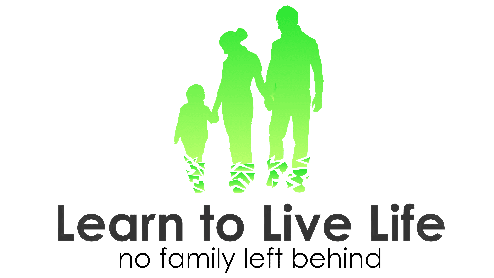What Are Dysfunctional Family Roles and How to Identify Them

Posted on January 11th, 2024.
Dysfunctional family roles can be challenging to recognize, yet they play a significant role in shaping our lives and relationships.
In this blog post, we will delve into the intricacies of dysfunctional family roles, explore the signs of a dysfunctional family, and provide insights on identifying and addressing these roles. Understanding these dynamics is crucial for personal growth and fostering healthier relationships.
What Are Dysfunctional Family Roles?
Dysfunctional family roles are patterns of behavior and interaction within families that can hinder emotional well-being and personal development. These roles typically arise in response to challenging or traumatic situations, and family members may unknowingly adopt them as coping mechanisms.
Recognizing these roles is the first step toward breaking free from their influence and building healthier relationships.
The People-Pleaser
The People-Pleaser is often the peacemaker of the family. They strive to keep conflicts at bay by accommodating others' needs and suppressing their own. While they may appear selfless, this role can lead to feelings of resentment and self-neglect.
Signs of a People-Pleaser:
- Difficulty saying "no"
- Fear of confrontation
- Putting others' needs before their own
- Low self-esteem
If you find yourself constantly prioritizing others' happiness over your own, you may be playing the role of the People-Pleaser.
The Scapegoat
The Scapegoat is the family member who often takes the blame for the family's problems. They may act out, rebel, or engage in negative behaviors as a way to distract from the family's deeper issues. This role can lead to a cycle of self-destructive behaviors and isolation.
Signs of a Scapegoat:
- Frequent punishment or criticism
- Difficulty conforming to family expectations
- Struggles with authority figures
- Acting out for attention
If you find yourself constantly in trouble or blamed for family problems, you may be playing the role of the Scapegoat.
The Hero
The Hero is the overachiever of the family. They excel academically, professionally, or in other areas to compensate for the family's dysfunction. While this role can lead to success, it often comes at the expense of personal well-being and the ability to express vulnerability.
Signs of a Hero:
- High-achieving in various areas
- Avoidance of emotional discussions
- Fear of failure
- Difficulty showing vulnerability
If you constantly feel the need to prove yourself and avoid discussing emotions, you may be playing the role of the Hero.
The Lost Child
The Lost Child is the family member who seeks solace by withdrawing from conflicts and emotions. They may become introverted, daydream frequently, and struggle with forming close relationships outside the family. This role can lead to feelings of loneliness and disconnection.
Signs of a Lost Child:
- Preference for solitude
- Avoidance of family gatherings
- Difficulty expressing feelings
- Limited social interactions
If you often find yourself withdrawing from family interactions and seeking solitude, you may be playing the role of the Lost Child.
The Enabler
The Enabler is the family member who enables the dysfunctional behaviors of others. They may make excuses for family members' actions, cover up their mistakes, or provide support even when it's detrimental. This role can perpetuate the cycle of dysfunction within the family.
Signs of an Enabler:
- Ignoring or excusing destructive behaviors
- Fear of confrontations
- Overprotective of family members
- Avoiding discussing problems
If you find yourself constantly making excuses for family members or avoiding discussions about problems, you may be playing the role of the Enabler.
Breaking Free from Dysfunctional Roles
Recognizing these dysfunctional family roles is the first step towards healing and personal growth. It's essential to understand that these roles are learned behaviors and not inherent traits. Here are some strategies to help you break free from these roles:
- Self-awareness: Recognize your role within the family dynamics and the impact it has on your life.
- Seek therapy: Professional therapy can provide a safe space to explore your family dynamics, develop coping strategies, and work towards healthier relationships.
- Set boundaries: Learn to assert your needs and boundaries while respecting the boundaries of others.
- Communication: Open and honest communication with family members can help address underlying issues and break the cycle of dysfunction.
- Build a support network: Seek support from friends, support groups, or mentors who can offer guidance and understanding.
- Self-care: Prioritize self-care and self-love to nurture your emotional well-being.
Conclusion
In conclusion, dysfunctional family roles can have a profound impact on our lives, influencing our behavior, relationships, and overall well-being. By recognizing these roles and taking proactive steps to address them, you can break free from their influence and build healthier, more fulfilling relationships.
If you or someone you know is struggling with dysfunctional family roles and would like guidance and support, please don't hesitate to reach out to us at Learn to Live Life, Inc. Our team of experienced professionals is here to assist you on your journey towards healing and personal growth. You can contact us at 404-671-5111 or email us at [email protected].
Contact Us
Connect With Us and Ignite Change: Contact Learn to Live Life Inc. Today
We would love to hear from you! Whether you have a question, want to learn more about our programs, or have a suggestion to share, please reach out using the contact form below. We value open communication and look forward to connecting with you. Let's work together to create stronger families and communities.
